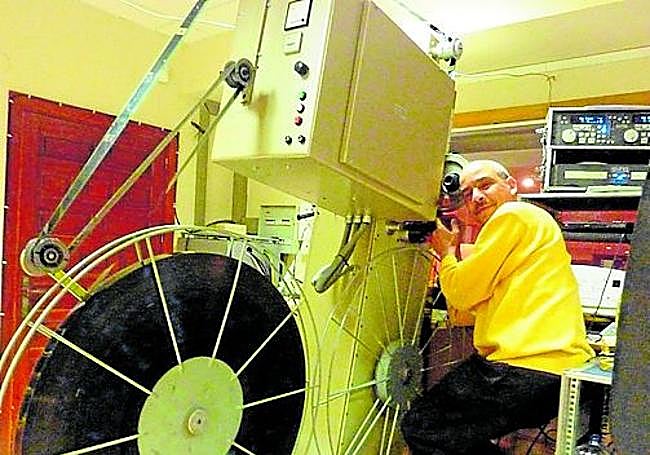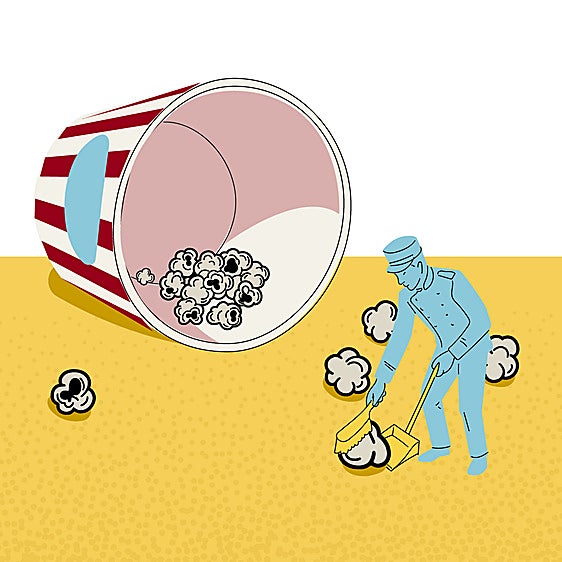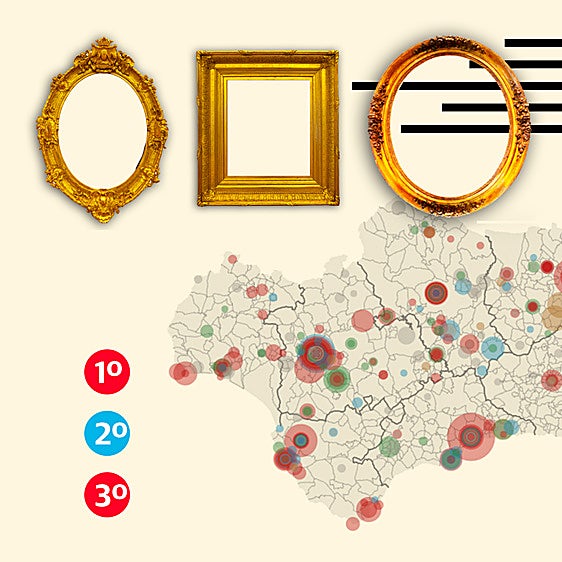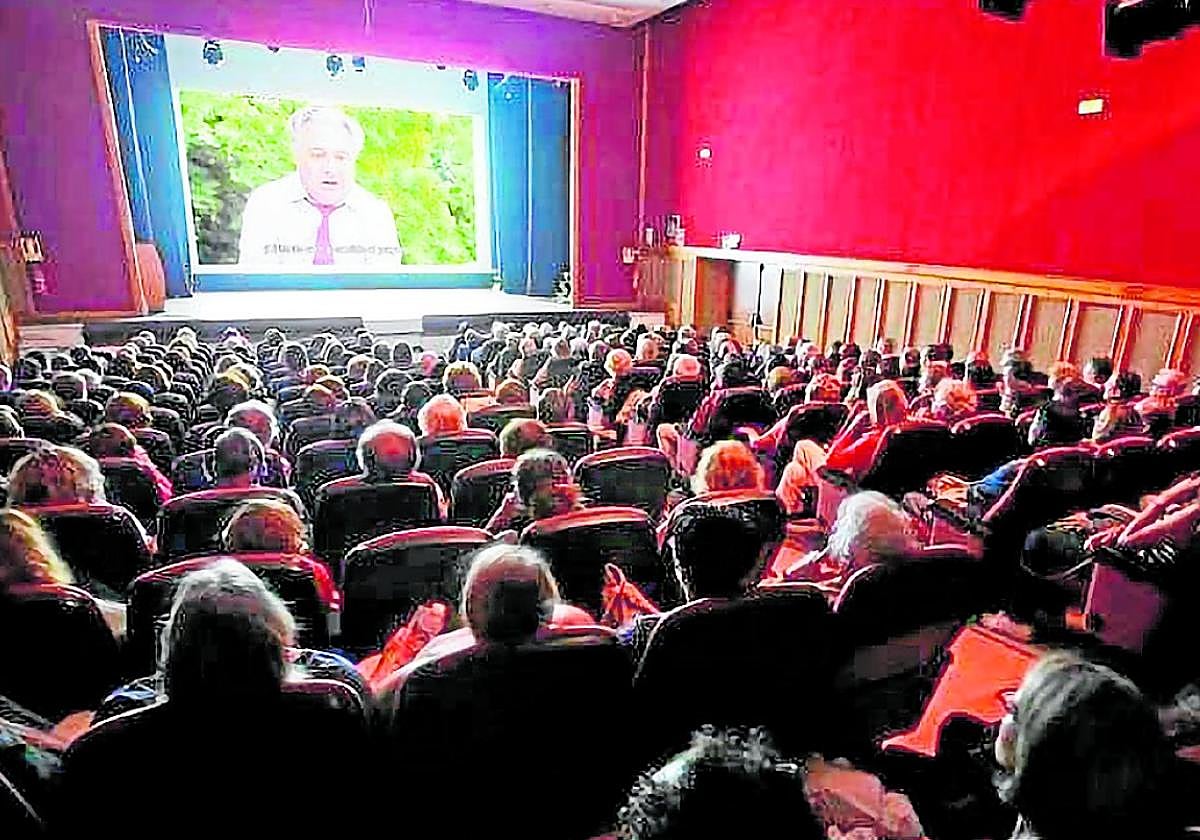Más Madera: the film club that lives on in Benalmádena
The town is home to one of Spain's few remaining active film clubs. Every Thursday evening it continues to fill its seats, screening non-commercial films in original version
Lorena Cádiz
Benalmádena
Friday, 10 May 2024, 14:02
Benalmádena's relationship with cinema goes back a long way. The municipality can boast that it has made history, screening films that became a breath of fresh air during Franco's regime. This was arranged through the art film festival, Semana de Cine de Autor (SICAB), which between 1969 and 1989 managed to put Benalmádena and the Costa del Sol on the map for lovers of the seventh art, attracting a large audience, critics, journalists and film professionals, from both Spain and abroad.
The arrival of democracy, and therefore, the end of censorship, as well as general access to many cultural activities paradoxically meant the end of the festival, which was also facing economic challenges that it could not cope with.
Despite the end of that festival, its 20 year-long journey left its mark on the local residents, who became "devoted to cinema". This led to a group of young people deciding to join forces and create a cultural association. That was how Más Madera was born. Now in its 32nd year, it can boast having a totally active film club, one of the few that exist in Andalucía and in the whole of Spain.
Every Thursday evening, in the Casa de Cultura in Arroyo de la Miel, Más Madera brings together all those who are looking for something more than what the commercial film circuit can offer. "We've generated a network of people who like our activity, who assume that the film is going to be good, who come from many places around the province, and who sometimes even come without knowing what we're going to screen," says Quique Garrido Caldentey, president of Más Madera and committee member for the past 18 years.
To get to the point of people taking their seats in the cinema, every so often the 11 people who comprise the committee and who work voluntarily, get together and talk about the new films that are available; they look at what is being screened in other independent cinemas, such as the Albéniz in Malaga, the information from which is used to produce a quarterly programme.

Zoom

A "quality" programme "far from the more commercial circuits, not because we don't like commercial cinema, but whoever wants to see a Hollywood movie has several means of doing so. What we offer is an art cinema, a cinema with a function, didactic, in a way, which transmits values and also allows the audience to gain knowledge of other cultures," Quique Garrido explains.
French cinema or Nordic cinema, as well as Spanish, are regularly on Más Madera's listings, but so is Latin American or Asian cinema. The important thing is that the film in question is distributed in Spain, as "if not, it's impossible". And very often, a better or worse distribution has nothing to do with the country's proximity. According to the president of the association, Italian or German films are not usually well distributed in Spain.
Up until now, the most unique film, due to its country of origin, which has been shown at the Casa de la Cultura in Benalmádena, is a feature film from Bhutan. "People applauded wildly at the end; it was a film of extraordinary sensitivity and sweetness," recalls Quique.
In the Más Madera film club, all films, regardless of their country or language of origin, are screened in their original version with subtitles. "You don't retouch a painting, so it's the same for films; they're a work of art and you can't change the voices because you'll change the concept," he points out.
Regarding the subject matter, "nothing is off limits". "It's clear that we're not going to put on porn, and at the beginning we were going off the fact that North American cinema is already sufficiently funded in cinemas, managing to fill 90% of listings. Taking this into account, we project any type of film, from any ideology, although we almost always lean towards humanist content."
Social media
It has now been a few years that Más Madera has embraced social media; perhaps this is the key to its success, as it currently has 800 members. They, as well as the general public, receive detailed information every week about the film that is going to be screened; the prizes that it has won; the criticism that it has received; and a short review.
In spite of the film's quality, of the committee's voluntary work, of the small annual fee that members pay, and of the 3 euros paid by non-members (2 euros for members) when they come to see a film, none of this would be possible if the club was not subsidised.
The town hall grants the association space in the Casa de la Cultura every Thursday evening and also provides funding so that Más Madera can carry out its activities without any setbacks. "To project a film alone costs 400 euros, and if we also add the cost of promotion or a regular schedule nine months out of the year, without a subsidy it would be completely impossible for us to continue operating."
It is worth mentioning that funding is not a concern for a modest film club like Más Madera. With every one of Benalmádena's councils, "we've always felt supported and valued". The worry comes more from generational replacement. "It's difficult," Quique Garrido acknowledges. "The younger people find it difficult to get involved with the association," he says. And that is key to the future of Más Madera: that there are always people willing to work just for their love of cinema.



